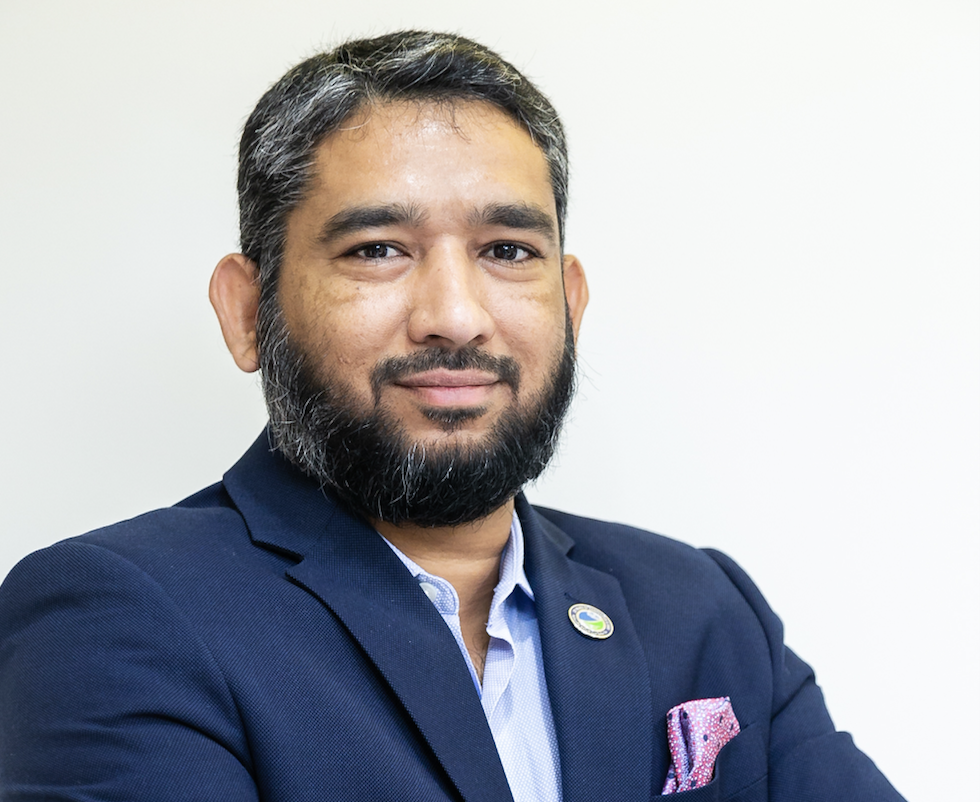With facilities in Sharjah and Dubai, Zulekha Hospital is home to some of the most advanced technologies, all designed to improve the patient experience and healthcare delivery. The technology programme for the hospital follows a lofty goal – to become a genuinely digital hospital of the future.
“We define digital transformation as the integration of digital technologies into all areas of the business, resulting in fundamental changes as to how we operate and deliver value to customers. In the world of the healthcare industry, Zulekha Hospital goes beyond infrastructure to ensure that every touchpoint offers progressive and compassionate care. We are committed to a holistic approach to healthcare,” says Aliasgar Bohari, IT director of the hospital.
Zulekha Hospital has invested heavily in technology – from patient-facing mobile apps to healthcare information systems in its quest break barriers in terms of healthcare offerings. Being an industry veteran, Bohari knows that improving efficiency and cutting costs in healthcare means collaborating with patients.
“Internet is everywhere, and it is something you cannot do without. High-quality wireless connectivity has become a norm in modern hospitals today as patients expect a Wi-Fi connection to stay in touch with family and friend during their treatment,” says Bohari.
However, the reality is most hospitals are not designed with wireless networks in mind, and many were caught unprepared by the sudden surge in devices accessing their wireless networks. “We faced the same issue because our old wireless network had many coverage holes, and we started facing poor performance of the network. This was when we decided to upgrade our WLAN infrastructure,” says Bohari.
Zulekah Hospital’s IT team started scouting around for a future-proof wireless solution that would allow it to leverage the latest advances in technology and establish robust and secure WiFi connectivity for staff and patrons. “Patients carry multiple devices, and we wanted a solution that we could evolve to provide free Wi-Fi to patients and at the same time promote our mobile app,”
He adds that though the short-term objective was to provide better Internet connectivity, the overarching aim was to establish a network that would improve patient safety and boost employee productivity. “Whether administering first-aid or performing life support, efficient communication can mean the difference between life and death in a hospital. This is one of the reasons hospitals need to have a robust, and reliable communication solution for customer service representatives to deliver clear, precise information to improve patient care,” says Bohari.
Today, free WiFi is available to patrons through the Zulekha mobile app, which also doubles up as a wayfinding tool, guiding patients through various departments and helping them navigate the building floors. “With more than 25000 downloads, the Zulekha mobile app allows patients to utilize their waiting time outside OPD or at fast track lounges with free Internet access, allowing us to provide a better patient experience and also promote our campaigns and events,” says Bohari.
Another significant benefit of wireless connectivity was the deployment of VoiP WiFi phones, which allow the hospital’s customer service managers, nursing and administrative staff to carry their SIP extension anywhere inside the premises, making them reachable through calls, message or broadcast announcement. “In code blue situations, wireless VoIP allows us to contact clinicians, no matter where they are, eliminating the need to track people down. By promoting fast and better collaboration, this has helped us to improve staff productivity,” says Bohari.
Zulekha Hospital is now in the process of deploying Aruba’s 802.11ac Wave 2 access points integrated with Bluetooth Beacons at its new facility in Dubai. “We are also planning to use Aruba’s heat mapping services, which will assist in finding the best location for each AP. It is very crucial for us to ensure the availability of Wi-Fi coverage across the building because of the implementation of over 60 Wi-Fi phones. Any hole in coverage will result in the breakdown of communications, which we cannot afford with patients’ lives hanging in the balance,” says Bohari.










Discussion about this post